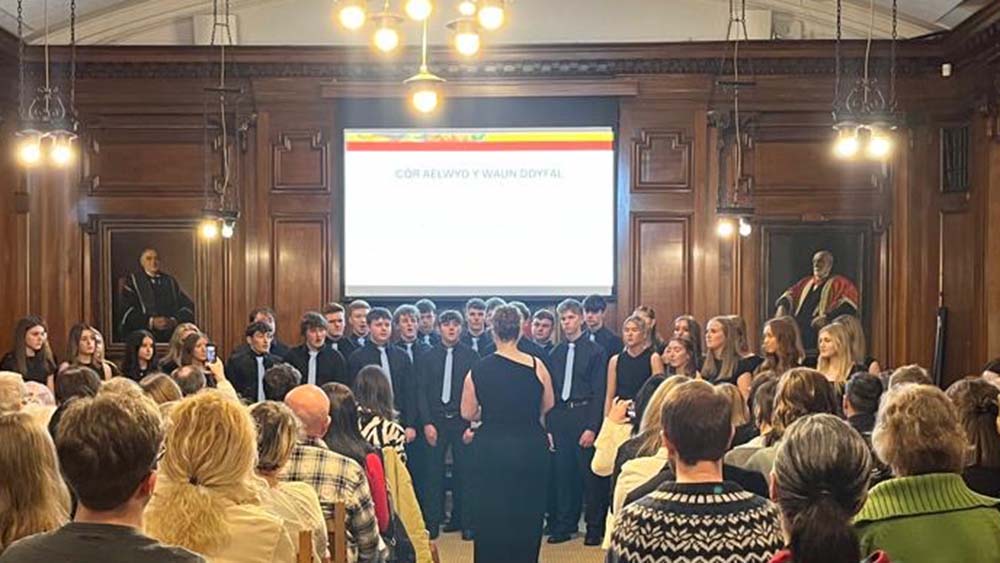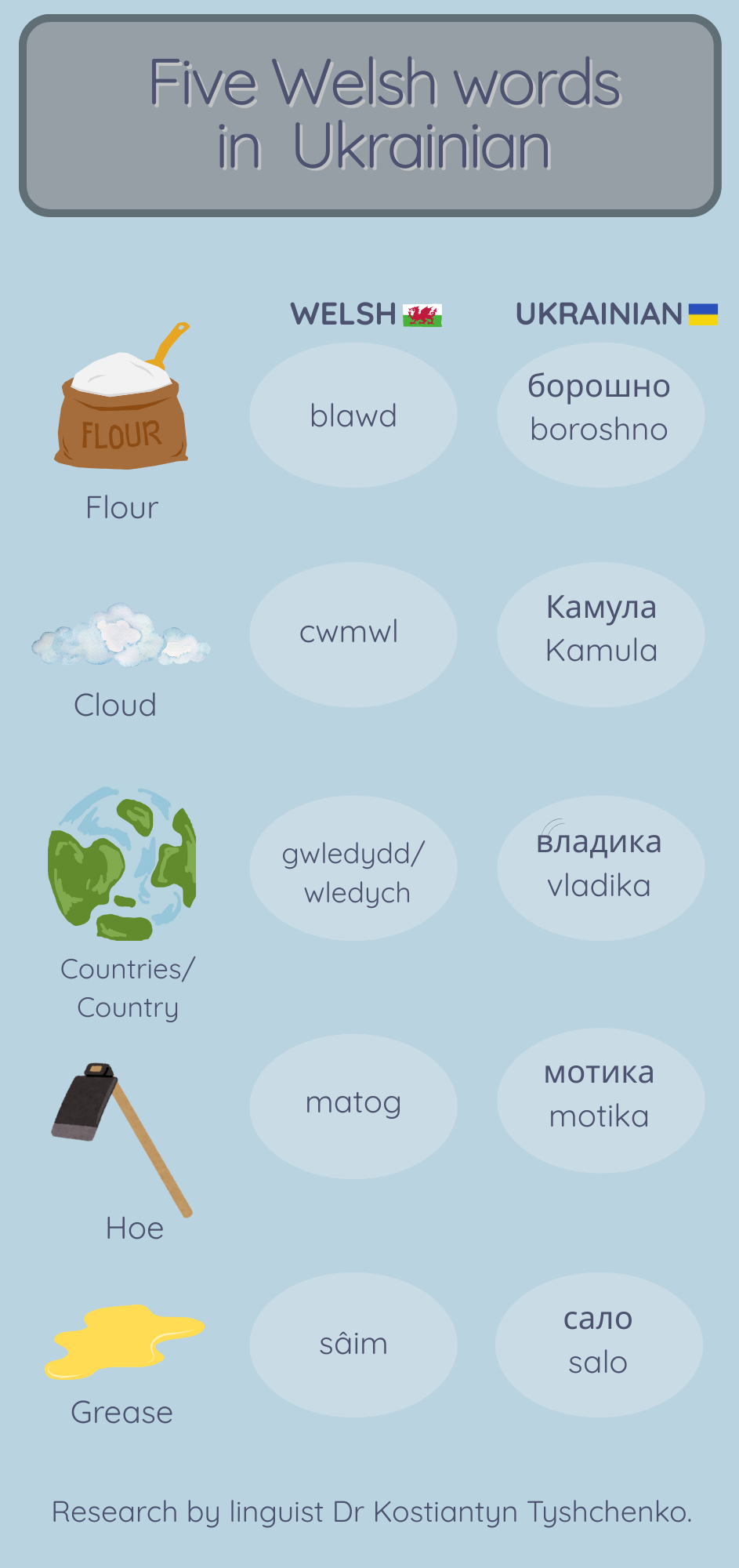The ‘Welsh-Ukrainian Poetry Event’ celebrated the rich cultural ties between the two nations. But what more is being done to safeguard their cultural heritage?

Olesya Miftakhova, a Ukrainian poet, was overcome with emotion during the reading of her works, which she composed two months before the attack on Ukraine.
Her poems depict life for many displaced Ukrainian people during these terrible times as she shared her longing for the war to end and to return to her homeland.
As she read her last piece, Miftakhova took a moment to thank the people of Wales for their support, she said, “We are grateful to Wales and the people for all their support and help during this long three years. Thank you.”
The ‘Welsh-Ukraine Poetry event’ honoured the cultural similarities between the two countries as poets shared their works in both Welsh and Ukrainian.
The event hosted by Cardiff University in collaboration with the Welsh Refugee Council and the Ukrainian diaspora marked the third anniversary of Russia’s invasion of Ukraine.
Nicholas Wysoczanskyj, Ukraine manager at the Welsh Refugee Council, said, “At this challenging time in the history of Ukraine, and the wider world, it is more vital than ever to look for our common experiences.
“It’s an important time to signal our solidarity with Ukrainians, who we have welcomed into Welsh life, after three long years of their homeland’s full-scale fight for survival.”

The event featured Welsh and Ukrainian poets, the Welsh-language choir Côr Aelwyd y Waun Ddyfal, and a virtual appearance by renowned Ukrainian journalist Vitaliy Portnikov.
The pieces of work selected for the event were heard in their native languages, expressing themes of identity, longing, and the hopes of one day returning home.
“Hearing the Ukrainian poets’ work was emotional and beautiful despite the language differences. I didn’t need to understand every word to understand the feeling,” said Elen Ifan, a lecturer at the School of Welsh at Cardiff University.
Many who attended the celebration also fled their homes, with some still separated from their families one in particular saying she has not been able to contact her family since arriving in Wales three years ago.
Wales has helped over 8,000 Ukrainians who have sought refuge following Russia’s full-fledged invasion of Ukraine on February 24, 2022.
Ifan, who also participated as a poet in the event said, “While we in Wales can’t fully comprehend the magnitude of the effects of the war on the country and people of Ukraine, this event was a wonderful opportunity to show solidarity as creatives and celebrate Cardiff as a City of Sanctuary.”

While the occasion mainly focused on the connections through cultural creativeness, both nations also share the issues of the provision of its native language.
During the opening speech, Dr Dylan Foster Evans, the head of the School of Welsh, stressed the contemporary consequences as well as their historical relationship.
“Both cultures have faced difficulties, in preserving its languages and culture,” Evans said. “Wales and Ukraine have both seen a deterioration in their mother tongues as a result of foreign occupation.”
During the Soviet era, Russian superseded Ukrainian as the primary official language in the same way that English replaced Welsh after England conquered it in the 13th century, acroding to Renowned Ukrainian journalist Vitaly Portnikov.
Ukraine’s Culture Ministry recently announced a program aimed at increasing the role of the Ukrainian language in everyday life by 2030, while the Welsh government launched a campaign to reach one million Welsh speakers by 2050 in efforts to protect their languages.

Portnikov used the opportunity to illustrate how both Welsh and Ukrainian cultures have survived and thrived despite historical tyranny.
She said, “It is important for us to adhere to the code of our cultural honour, to preserve our traditions, our language, and our history, so that we always remember.
“We are those who can rise from a dead culture, as Ronald Stuart Thomas wrote, and make this culture eternally alive.”
The historical relationship between Wales and Ukraine may be traced back to 52 BCE and the fifth and sixth centuries, according to evidence of Celtic tribes settling in western and northern Ukraine.
Wysoczanskyj said, “While we’re geographically far apart as nations, we’re close together in our history, and our beliefs.
“This can be seen in the shared use of poetry, literature and song, as tools for cultural survival through centuries of oppression.”
